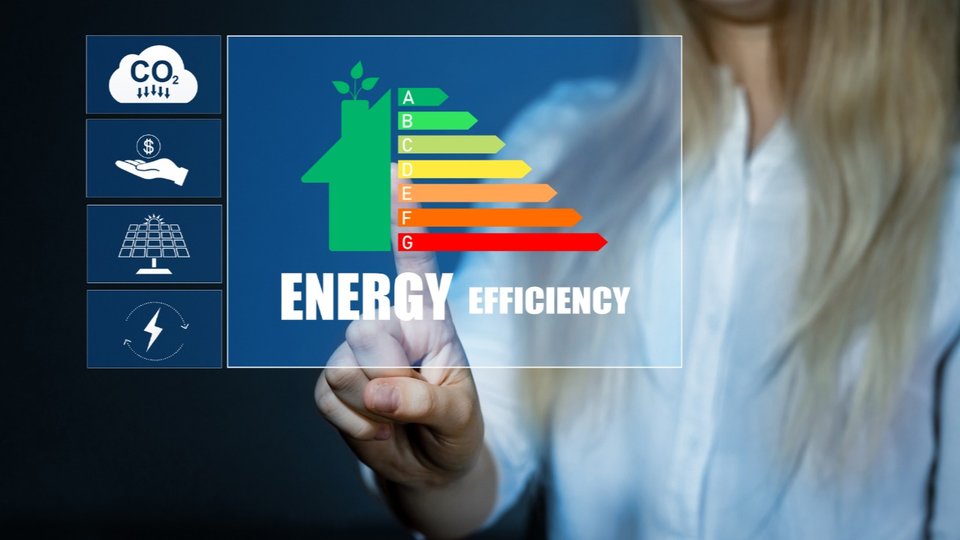Operations
How energy management strategies help beat inflation squeeze
Quick service restaurants use up to 10 times more energy per square foot than other commercial buildings. Energy efficiency is a hidden way to reduces costs.

January 2, 2023 by Al Subbloie
Businesses of all kinds have been feeling the squeeze from rising inflation, but quick service restaurant (QSR) businesses that already operate on razor-thin margins are especially vulnerable to the impacts. Much to the dismay of customers, many chains have been forced to raise their prices on menu items. For owners and operators looking to cut costs and keep their customers happy, energy management is a great place to start.
According to Energy Star, quick service restaurants use up to 10 times more energy per square foot than other commercial buildings. To understand what this looks like in dollars, consider a McDonald's in California: the average fast-food restaurant uses an average of 81 kilowatt-hours (kWh) of electricity per square foot, and the average McDonald's is 4,500 square feet, according to Statista. Based on the state's average electric bill rate of 30¢ per kWh, that's an annual electricity spend of a whopping $109,350.
Installing energy efficient equipment and smart monitoring tools
Upgrading outdated equipment such as lighting, refrigeration, freezers and HVAC units with new energy efficient models is the lowest hanging fruit with a big pay-off. These assets can account for up to 55% of a QSR owner's utility bill according to eSource. Simply updating fixtures with LED light bulbs can reduce electricity consumption of your lighting by between 75 and 80%. In some cases, you don't need to replace the whole unit but just add new parts.
In addition to these passive installations, advancements in smart technologies, IoT devices and cloud-based energy monitoring software are unlocking even greater energy savings. Smart equipment and energy monitoring systems take into account environmental information, such as foot traffic, to make automatic adjustments to room temperature or lighting. These systems are also capable of delivering real-time insights to optimize operations, as well as alerts for potential maintenance issues. Having a smart energy management strategy allows operators to manage all points of energy consumption in the restaurant so it can run at peak efficiency and performance.
Generate your own energy and ensure uninterrupted operations with solar plus storage
As the price of renewable technologies comes down, more QSR owners are considering solar panels and battery storage. Not only does this send the message that your business cares about the environment, but generating your own clean electricity is less expensive than paying the utility. In some cases, restaurants may generate an excess that can be potentially sold back to the grid for a credit.
Another important benefit is that on-site batteries keep the grill on and refrigerator running in the event of a grid outage, which are happening with increasing frequency. A power outage doesn't just stop a restaurant from serving burgers and turning a profit, it can lead to tens of thousands of dollars in financial losses from spoiled and wasted products.
The multiple benefits of adding EV charging as a customer amenity
EV charging isn't just a nice-to-have customer amenity, it offers a way to super-charge your energy management strategy with financial rewards. Businesses can either offer free charging to customers as a way to increase traffic or generate entirely new revenues by charging a fee to use the charger. Either way, the business wins. Charging stations can also cut energy costs when integrated with energy storage as it helps mitigate utility demand charges.
In addition, charging stations offer new marketing opportunities, such as loyalty programs for customers that use both services, or digital display ads on the chargers to promote meal deals or new menu items. Like with the solar panels, EV charging stations send a big message about a business's commitment to corporate sustainability. With 88% of Americans saying that they would be more loyal to a company that supports social or environmental issues (according to a Forbes report), EV charging stations are a direct path to happier customers and sustained profits.
Outsourcing your energy management overcomes barriers to entry
I know what you're thinking — this all sounds well and good, but even the simplest of improvements like installing LED lighting costs money upfront. It may take years to realize the ROI on these assets, while QSR operators are struggling now. That's why QSRs should consider outsourcing their energy management to providers with the required expertise, resources and capital.
Handling costs is just one benefit of outsourcing, or energy-as-a-service as it's also understood. QSR owners going at it alone have to shoulder the burden of finding, hiring and managing multiple vendors, in addition to paying for upgrades, installations and maintenance. The time spent managing these cumbersome projects is time taken away from running their business. Supply chain issues mean owners may experience longer wait times before receiving new equipment and reaping the cost and energy saving benefits. Lastly, getting access to data that is easy to understand and that gives owners a complete look at how their equipment is contributing to energy savings and carbon reduction is tricky, if not impossible, without the right outsourced energy management partner.
In the past, organizations had to pay the up-front cost or wait for the return on energy efficiency investments. Today, more companies are choosing to conserve their capital and save on energy from day one. Innovative providers are already thinking about how energy efficient equipment, monitoring software, on-premise clean power generation and clean energy amenities like EV charging come together in the form of a holistic energy management strategy. The best part is that these solutions are designed to maximize energy savings and eliminate out-of-pocket cost and complexity for QSRs, so you can take the first step towards being a more competitive, sustainable and profitable business today.
 ChatGPT
ChatGPT Grok
Grok Perplexity
Perplexity Claude
Claude








